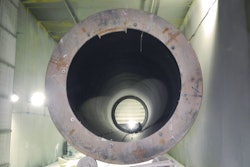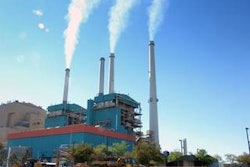BEIJING (AP) -- China's government announced plans Friday to build up a handful of large producers of infant formula in its latest effort to revive an industry that is reeling from a scandal over tainted milk.
Dairies will be encouraged to merge to form more competitive producers and will receive financial support, a Cabinet statement said. It said plans call for creating 10 producers by next year with at least 2 billion yuan ($300 million) in annual revenue and three to five by 2018 with revenue of 5 billion yuan ($800 million).
China's dairies have been on the defensive since a 2008 scandal over tainted formula that killed at least six babies and prompted many parents to switch to imported brands.
Domestic brands lost market share to suppliers from New Zealand, Australia, Europe and elsewhere, setting back the communist government's efforts to build a dairy industry.
Beijing wants to restore consumer faith in Chinese formula and will enforce "strict quality management," the Cabinet statement said.
In the 2008 scandal, some milk was found to contain melamine, a chemical that can cause kidney damage and other injuries. Unscrupulous suppliers added it to watered-down supplies to fool tests for levels of protein in the milk.
The brand at the center of the scandal, Sanlu, was broken up and regulators overhauled industry supervision. But that failed to reassure Chinese parents. The reputation of imported brands is so much stronger that customers pay up to three times the price of Chinese milk for them.
Last August, regulators fined five foreign milk suppliers and one from Hong Kong a total of $108 million on charges they violated China's anti-monopoly law by setting minimum retail prices for stores.
In May, the Chinese product quality agency announced that only milk products from foreign sources that are registered with the government can be imported.
A list issued by the Administration for Quality Supervision, Inspection and Quarantine showed foreign brands including European units of Abbot Laboratories, Mead Johnson Nutrition Co. and Nestle Group have registered.
An industry group in New Zealand said at that time only six of the country's 13 suppliers were approved. The chairman of the New Zealand Infant Formula Exporters Association said that might result in some shipments to China being blocked.
In May, the city government of Beijing unveiled plans to give 10.8 million yuan ($1.7 million) to a local brand, Sanyuan Group, to develop "safe and healthy infant milk powder," according to Chinese news reports.






















